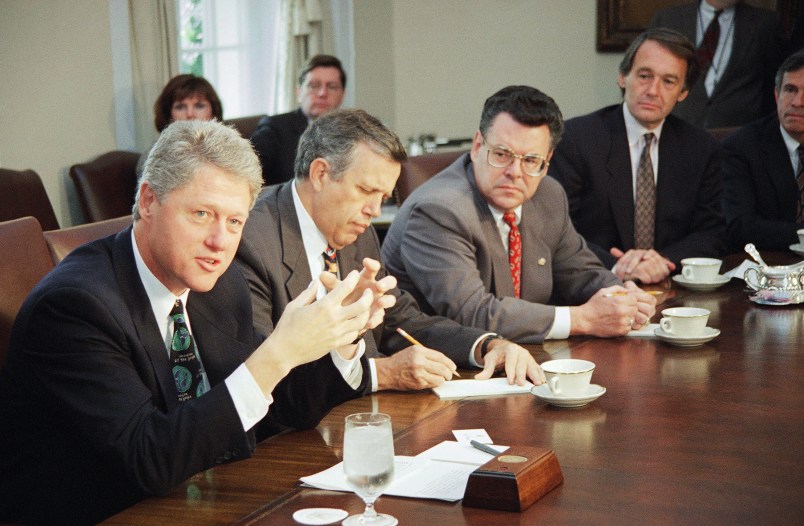In 1996, Rep. Jay Dickey (R-AR) spearheaded a piece of legislation that effectively put an end to government-funded research of gun violence. Now 75, the retired congressman admitted in a Huffington Post interview, “I have regrets.”
Dickey said his mind was changed after years of watching people lose their lives in mass shootings, like the massacre at Umpqua Community College last week that left 10 people dead.
“I wish we had started the proper research and kept it going all this time,” Dickey said.
His namesake amendment eliminated the $2.6 million that the Center for Disease Control spent on researching the effects of firearms ownership on public health. Passed by a Republican-dominated Congress, the NRA-backed amendment explicitly stated that, “None of the funds made available for injury prevention and control at the Centers for Disease Control and Prevention may be used to advocate or promote gun control.”
Over the last two decades, conservatives have relied on the Dickey amendment to make the case that gun violence is not a public health issue. As the Huffington Post reported, congressional Republicans extended the Dickey amendment to apply to the National Institutes of Health in 2011, and in the wake of the Charleston church shooting this summer, House Speaker John Boehner defended the lack of governmental research by saying “a gun is not a disease.”
Dickey now finds himself at odds with the current crop of conservatives in Congress, who he says are over-interpreting his law. He told the Huffington Post that safety barriers along highways are the kind of common-sense life-saving measures that research can produce.
“If we had somehow gotten the research going, we could have somehow found a solution to the gun violence without there being any restrictions on the Second Amendment,” Dickey said. “We could have used that all these years to develop the equivalent of that little small fence.”
(Rep. Dickey is seated to the immediate right of U.S. President Bill Clinton in the photo above, during an Oct. 19, 1993 meeting in the Cabinet Room)








Regrets,eh? Well then, I’m sure thousands of gun violence victims say they forgive you.
What would be the point? The GOP doesn’t believe in “facts” or “research” anyway.
Strange thing about the human mind - not every idea that passes through it is a good one. Tell us Congressman, why was this so important to you. Perhaps you weren’t thinking at all but someone else was whispering in your wallet.
Mortality has a way of making some people see the truth.
Too late, dude. Your epitath is already written.